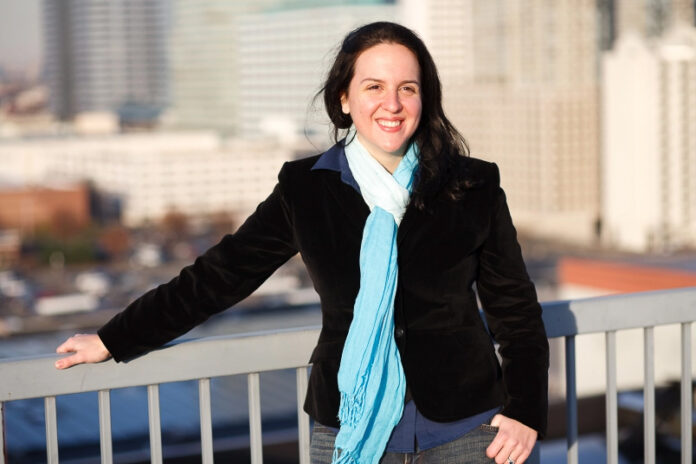On Monday, Mar. 6, Muhlenberg’s media & communication department hosted Lehigh University’s Associate Professor of Sociology Danielle J. Lindemann, Ph.D., for her lecture entitled, “True Story: What Reality TV Says About Us.” The talk was based on her book of the same name, which was published a little over a year ago and has since garnered attention from multiple media giants, including The Washington Post, NPR and Esquire.
Lindemann began by explaining why she decided to focus her sociological research on reality TV, which she felt was necessary because it had been discounted by many of her academic peers. Her work with students showed her it was a valuable resource to explain concepts from sociology and make them accessible, especially because sociology writing is filled with elevated language and paywalls.
She went on to explain what reality TV is, since many people claim they don’t watch or enjoy it, but nearly half of all TV is reality TV, and, as Lindemann said, it’s “impossible to look away.” Her definition includes television that features people “ostensibly being themselves,” rather than characters, that is primarily meant to entertain rather than inform. This makes cooking shows and competitions reality TV, but excludes news broadcasts.
Lindemann led her audience in an activity to prove the salience of reality TV that she called the Kardashians/Supreme Court challenge. This involved everyone working by themselves or with others around them to name as many members of the Kardashian family and the Supreme Court as they could while Lindemann observed. In the end, only a group of Muhlenberg professors could name every justice.
This challenge proved that even if you don’t watch “Keeping Up With The Kardashians,” they’ve still impacted you in some way. This was even qualified by multiple studies cited by Lindemann, such as a decrease in teen pregnancies during the height of “Sixteen and Pregnant” or Donald Trump’s rise to the presidency after his time on “The Apprentice.”
“Am I a horrible person for watching?”
-Danielle J. Lindenmann, PhD.
Lindemann then explained that the exaggerated performances we see on reality TV can reveal to us what our society values and believes; in Lindemann’s words, “it teaches us the narratives we tell ourselves about marginalized groups.” “RuPaul’s Drag Race” and “The Bachelor,” for example, are performances of gender that show us an exaggerated version of how we believe men and women should look and act in society.
Using this lens on more reality TV, we see how our ideas of class are normalized by what we watch. Looking at “Undercover Boss,” “The Kardashians,” “Here Comes Honey Boo Boo,” “Basketball Wives” and “What Not to Wear,” Lindemann explained how “reality TV takes us on a tour of the class system,” revealing how much we value the opinions of the wealthy and how much the media we consume likes to make fun of the working class, even when they are able to overcome their circumstances.
Lindemann concluded with the question, “Am I a horrible person for watching?” Her answer is no, because it would make her a horrible person, too, and because this “trash” can help us understand our world. She implored everyone to think more critically and apply a sociological lens to everything they consume, and to not feel guilty about enjoying their favorite reality TV show.






















